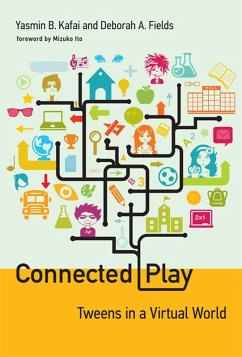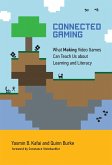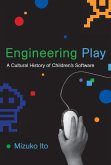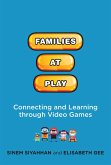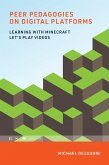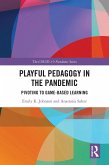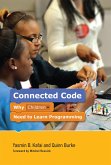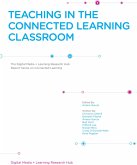Millions of children visit virtual worlds every day. In such virtual play spaces as Habbo Hotel, Toontown, and Whyville, kids chat with friends from school, meet new people, construct avatars, and earn and spend virtual currency. In Connected Play, Yasmin Kafai and Deborah Fields investigate what happens when kids play in virtual worlds, how this matters for their offline lives, and what this means for the design of educational opportunities in digital worlds.
Play is fundamentally important for kids' development, but, Kafai and Fields argue, to understand play in virtual worlds, we need to connect concerns of development and culture with those of digital media and learning. Kafai and Fields do this through a detailed study of kids' play in Whyville, a massive, informal virtual world with educational content for tween players. Combining ethnographic accounts with analysis of logfile data, they present rich portraits and overviews of how kids learn to play in a digital domain, developing certain technological competencies; how kids learn to play well—responsibly, respectfully, and safely; and how kids learn to play creatively, creating content that becomes a part of the virtual world itself.
Dieser Download kann aus rechtlichen Gründen nur mit Rechnungsadresse in A, B, BG, CY, CZ, D, DK, EW, E, FIN, F, GR, HR, H, IRL, I, LT, L, LR, M, NL, PL, P, R, S, SLO, SK ausgeliefert werden.

